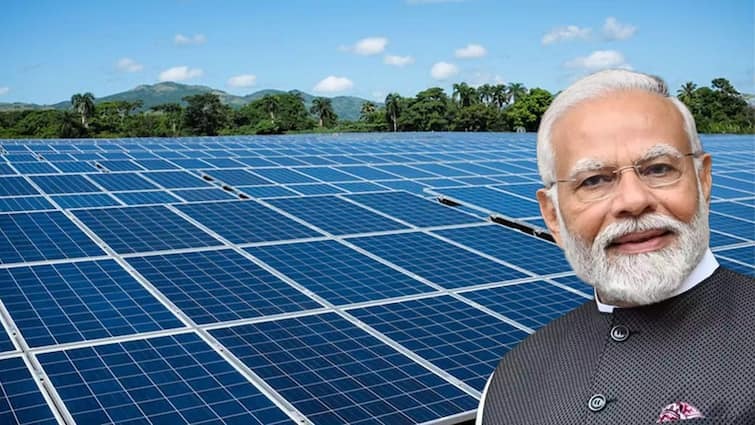
Union Finance Minister Nirmala Sitharaman has presented the first general budget of the third term of Prime Minister Narendra Modi's government. This was Nirmala Sitharaman's 7th general budget as Finance Minister. The central government has announced the Pradhan Mantri Suraj Ghar Free Electricity Scheme to install solar panels on 1 crore houses in the budget. Sitharaman said that under the Pradhan Mantri Suraj Ghar Free Electricity Scheme, solar plants will be installed on the roofs. Which will generate electricity. 1 crore families will benefit from this scheme. They will get 300 units of free electricity every month.
They Budget During the 2024 speech, he said that under the Pradhan Mantri Suraj Ghar Free Electricity Scheme, more than 1.28 crore registrations have been done so far. 14 lakh applications have been received. People have shown interest in this scheme. Therefore, this scheme will be extended further.
What is the Prime Minister's Suraj Ghar Free Electricity Scheme?
Pradhan Mantri Surya Ghar Free Electricity Scheme or Pradhan Mantri Suryodaya Yojana is a scheme run by the Central Government. Under this, a target has been set to install solar panels on the roofs of 1 crore houses across the country. Under the scheme, beneficiaries can reduce their electricity bill by about two-thirds. If you install solar panels on the roof of your house under this scheme, then the central government gives subsidy of up to Rs 78,000 to the beneficiaries in various categories. The aim of the free electricity scheme is to enable people to install solar panels so that their expenditure on electricity requirements can be reduced significantly.
In fact, many people install solar panels on the roof of their houses. In such a situation, Finance Minister Nirmala Sitharaman has made a new announcement to promote green and clean energy.
Benefits of Prime Minister Suraj Ghar Free Electricity Scheme
The Finance Minister had said in his speech in February that families taking advantage of this scheme can save Rs 15,000 to Rs 18,000 every year. They will get up to 300 units of free electricity. They can also sell the excess electricity. Apart from this, there will be many other benefits of this scheme. For example, electric vehicles can be charged through these. Also, it will create new employment opportunities for the youth, as it will require people for construction, installation and maintenance work.
 look news india
look news india